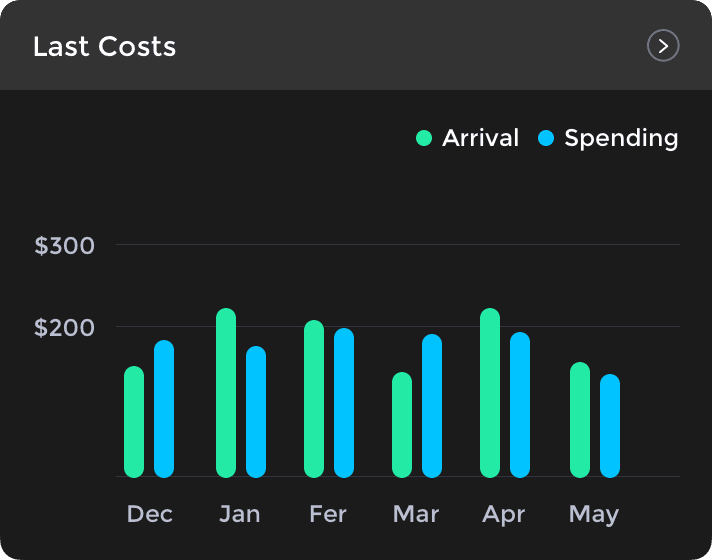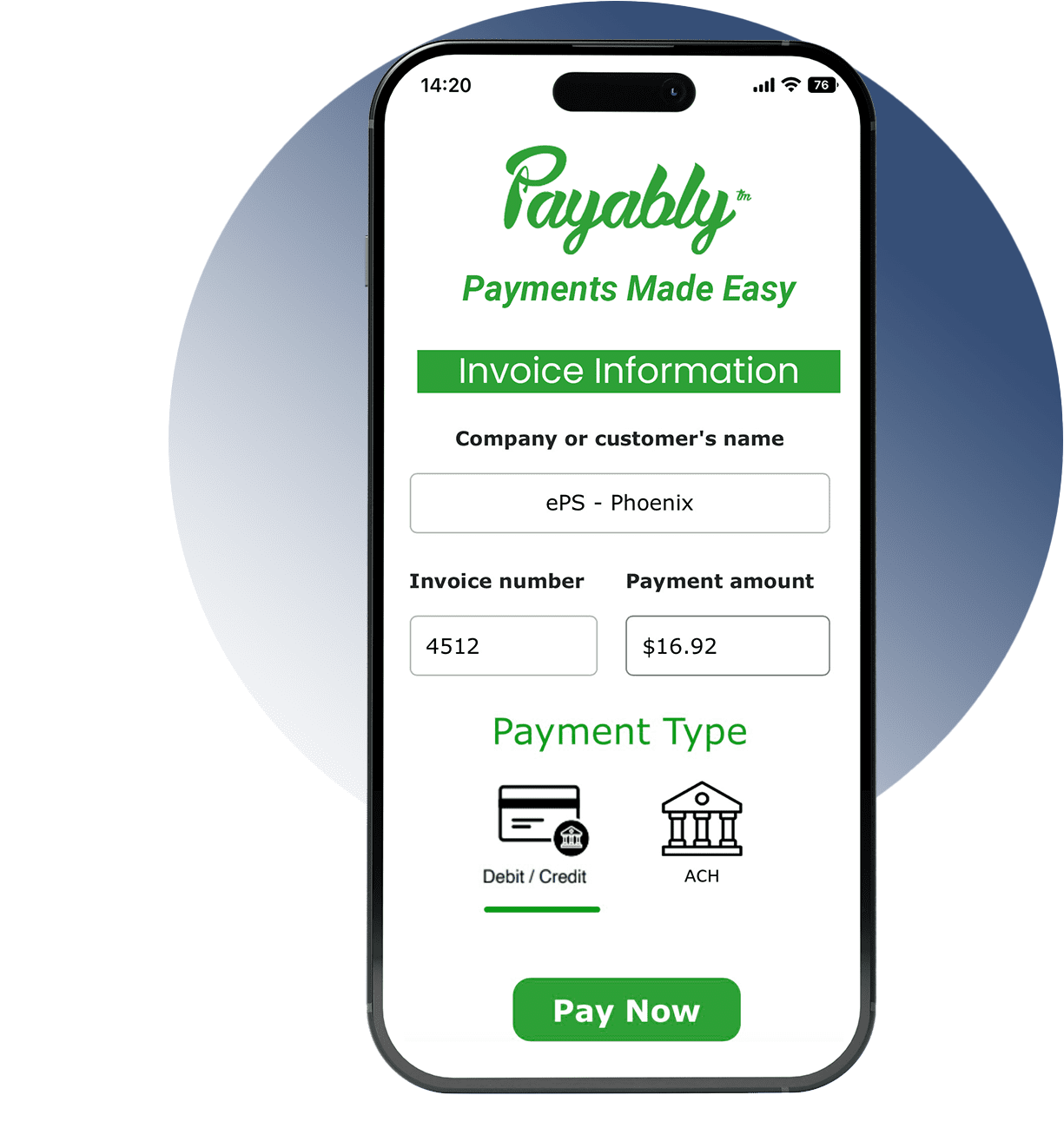Unlocking Financial Jargon:
Your Essential Guide
Understanding financial terminology can feel like deciphering a foreign language, but with Bristol Pay’s comprehensive Glossary, the meaning of key terms is just a click away. Whether you’re a seasoned business pro or new to managing your finances, our collection of definitions helps provides clarity on everything from ACH and Gateway to MOTO and more.

ACH payments, short for Automated Clearing House payments, are electronic transfers of funds between bank accounts. They offer businesses a convenient and cost-effective way to handle transactions, such as payroll deposits, bill payments, and receiving funds from customers. ACH payments streamline financial processes, providing reliability and efficiency for businesses of all sizes.
An Address Verification Service (AVS) is a security feature used in credit card transactions to help verify the cardholder’s billing address. During a transaction, the AVS compares the numerical portion of the billing address provided by the cardholder (such as street number and zip code) with the address on file with the card issuer. If there is a match, it can help confirm the authenticity of the transaction and reduce the risk of fraud. AVS is commonly used in card-not-present transactions, such as online or over-the-phone purchases, to enhance security and reduce the likelihood of unauthorized transactions.
Card-Not-Present (CNP) transactions are electronic payments made without the physical presence of the cardholder or the payment card itself. Instead of swiping or inserting a card into a card reader, CNP transactions typically occur online, over the phone, or by mail. Examples include online purchases, telephone orders, and mail-order purchases. Because the card is not physically present to be verified, CNP transactions carry a higher risk of fraud compared to in-person transactions. Merchants often implement additional security measures, such as address verification or card security codes, to mitigate this risk.
A chargeback occurs when a customer disputes a transaction with their bank or credit card issuer and requests a refund of the purchase amount. Chargebacks can occur for various reasons, such as unauthorized transactions, billing errors, or dissatisfaction with the product or service received. When a chargeback is initiated, the merchant is typically required to provide evidence to prove that the transaction was valid and authorized. If the chargeback is successful, the funds are reversed from the merchant’s account and returned to the customer, along with any associated fees. Chargebacks can have negative implications for merchants, including financial losses, increased processing fees, and damage to their reputation.
A credit card issuer is a financial institution, such as a bank or credit union, that issues credit cards to consumers. The issuer extends a line of credit to cardholders, allowing them to make purchases up to a predetermined credit limit. In addition to issuing credit cards, the issuer is responsible for managing card accounts, processing transactions, billing cardholders, and providing customer service. The issuer also sets the terms and conditions of the credit card, including interest rates, fees, and rewards programs.
A credit card processor is a company – Bristol Pay – that handles credit card transactions for businesses, ensuring payments are securely processed and funds are transferred from the customer’s bank to the merchant’s account. They provide the technology and services needed to authorize, process, and settle card payments, enabling businesses to accept credit and debit card transactions seamlessly.
eCommerce, short for electronic commerce, refers to the buying and selling of goods and services over the internet. It encompasses a wide range of online transactions, including online retail purchases, digital downloads, subscription services, and online bookings. eCommerce transactions can take place on various platforms, such as websites, mobile apps, and online marketplaces, and may involve different payment methods, such as credit cards, digital wallets, or bank transfers. eCommerce has transformed the way businesses operate and consumers shop, offering convenience, accessibility, and a global marketplace for buying and selling goods and services.
EMV Compliant refers to payment systems and devices that adhere to the EMV standard, which stands for Europay, Mastercard, and Visa. This standard involves using smart chip technology in credit and debit cards to enhance security. EMV-compliant systems use these chips to authenticate transactions, making it much harder for fraudsters to clone cards or engage in unauthorized transactions. In essence, being EMV-compliant means your payment processing equipment and practices meet the latest security requirements to protect against card fraud.
Fraud is an illegal or dishonest act involving deception, misrepresentation, or false pretenses, typically carried out to gain some form of financial benefit or advantage. In the context of financial transactions, fraud often involves unauthorized or deceptive activities, such as identity theft, credit card fraud, or account takeover. Fraud can take many forms, including but not limited to, unauthorized transactions, counterfeit currency, phishing scams, and fraudulent checks. It poses a significant risk to individuals, businesses, and financial institutions, leading to financial losses, reputational damage, and legal consequences. Preventing and detecting fraud requires robust security measures, vigilant monitoring, and proactive risk management strategies.
A payment gateway is the technology that facilitates the transfer of payment information between a customer’s bank (issuing bank) and a merchant’s bank (acquiring bank) during an online transaction. It acts as an intermediary, securely transmitting the payment details from the invoicing page to the payment processor for authorization and settlement. Payment gateways use encryption and other security measures to protect sensitive data, such as credit card numbers, ensuring safe and efficient transactions. They enable merchants to accept various forms of electronic payments, including credit and debit cards, digital wallets, and bank transfers. The gateway will not show transactions from the Payably terminal. Those transactions will be shown on IQ. You can log into the gateway here.
Interchange Fees are the actual costs that businesses incur for each credit or debit card transaction. These fees are paid to banks and card networks for handling the payment process. Interchange fees can vary depending on a bunch of factors, like the type of card used (credit, debit, rewards, etc.), how the transaction is processed (online, in-store, etc.), and Merchant Category Code (MCC).
Interchange Rates refer to the percentage rates set by card networks (like American Express, Visa or Mastercard) that determine the interchange fees. These rates vary based on factors like the type of card used, the nature of the transaction (e.g., online or in-person), and the business category. Essentially, interchange rates are the guidelines that dictate how much the interchange fees will be.
Level II and Level III processing are like turbocharged versions of your regular card transactions, but with extra details included. Level II processing adds things like sales tax amount and customer codes to the mix, while Level III processing goes even further by including item descriptions and quantities. By providing this additional information, you can qualify for lower interchange rates, which means saving money on processing fees. It’s like getting a discount just for giving a little more info with each transaction. Plus, it helps streamline your payment process and makes everything run smoother for your business.
A low-risk merchant is a business that is considered to pose minimal risk to payment processors and banks in terms of chargebacks, fraud, or other financial liabilities. These businesses typically have a stable financial history, low chargeback rates, and operate in industries with lower incidences of fraud or disputes. Examples of low-risk merchants may include retail stores, grocery stores, and utility providers. Being classified as a low-risk merchant often results in lower processing fees and fewer restrictions on payment processing services.
Mail Order/Telephone Order (MOTO) businesses are types of businesses that primarily accept payments via mail order or telephone orders, rather than through traditional in-person transactions. In a MOTO transaction, the customer provides their payment information, such as credit card details, over the phone or by mail, and the merchant processes the payment manually. MOTO businesses are often used by companies that operate remotely or do not have physical storefronts, such as mail-order catalogs, subscription services, or telemarketing companies. MOTO transactions may involve higher processing fees and carry a greater risk of fraud compared to in-person transactions, so businesses typically implement additional security measures to mitigate these risks.
A merchant is a business owner that sells goods or services to customers in exchange for payment. Merchants can operate in various industries and sectors, including retail, e-commerce, hospitality, and professional services. They may sell products through physical storefronts, online platforms, or both. Merchants play a vital role in the economy by offering goods and services to meet consumer needs and preferences, driving economic activity and facilitating trade.
A merchant account is a type of bank account that enables businesses to accept and process payments, primarily from credit and debit cards. It acts as an intermediary holding account where funds from card transactions are temporarily held before being transferred to the business’s primary bank account. Merchant accounts are essential for facilitating electronic payments, ensuring secure transactions, and managing the financial flow from customer purchases to the business’s revenue.
A Merchant ID number (MID) is a unique identifier assigned to a merchant by their payment processor or acquiring bank. This number distinguishes one merchant from another within the payment processing system and is used to track and manage transactions associated with that specific merchant account. The MID allows merchants to accept electronic payments and receive funds from customers, while also enabling payment processors to accurately track and process transactions for each merchant.
A payment processor is a service provider or company like Bristol Pay that facilitates electronic payment transactions between merchants and customers. Payment processors handle the authorization, processing, and settlement of transactions, ensuring that funds are securely transferred from the customer’s account to the merchant’s account. They provide the technology and infrastructure needed to accept various forms of payment, including credit cards, debit cards, and ACH transfers, both online and in-person. Payment processors play a crucial role in enabling businesses to accept electronic payments, manage transactions, and maintain financial security.
A PIN, or Personal Identification Number, is a secure, numeric code used to authenticate a cardholder’s identity during a transaction. Typically consisting of four to six digits, the PIN is entered by the cardholder at a point-of-sale terminal, ATM, or online payment gateway. This additional layer of security helps prevent unauthorized use of the card by ensuring that only the cardholder can complete the transaction.
Payment Gateway is like the digital bouncer at a club, but for your credit card transactions. It’s a secure software that acts as the middleman between your store and the payment processor, making sure your customers’ payment info gets from point A to point B safely and smoothly. When someone makes a purchase, the payment gateway encrypts their credit card info and sends it to the payment processor, which then checks with the bank to make sure the funds are good. Once everything checks out, the payment processor gives the thumbs-up to the payment gateway, which then completes the transaction and lets you know it’s all good to go. It’s like a digital handshake that ensures everyone gets what they need without any funny business.
Payment processing is the behind-the-scenes magic that ensures you get paid when customers buy your products or services. It involves securely transferring payment information from your customer to your bank account, all while keeping everything safe from sneaky cyber threats. In essence, it’s the backbone of your business’s financial operations, making sure every transaction goes smoothly and securely.
PCI DSS stands for Payment Card Industry Data Security Standard. It’s like the superhero squad of the digital world—a set of rules and regulations designed to protect sensitive payment data from falling into the wrong hands. Think of it as the fortress guarding the treasure trove of customer information, ensuring that every transaction is as secure as Fort Knox. With PCI DSS, businesses are required to follow a series of guidelines, from encrypting data to regularly monitoring networks, all in the name of keeping cyber villains at bay. So, next time you see those six letters, know that PCI DSS is the unsung hero keeping your online transactions safe and sound.
Processing rates refer to the fees charged by payment processors for each transaction they facilitate on behalf of a merchant. These rates typically consist of a percentage of the transaction amount plus a flat fee per transaction. The processing rates can vary depending on factors such as the type of transaction (e.g., credit card, debit card, ACH), the payment method used (e.g., online, in-person), the type of card (e.g., rewards card, corporate card), and the processing provider. Processing rates are an essential consideration for merchants when evaluating payment processing services, as they directly impact the overall cost of accepting electronic payments.
Small-to-medium sized businesses (SMBs), also known as small and medium-sized enterprises (SMEs), are companies that fall within a certain size range in terms of revenue, assets, or number of employees. While definitions of SMBs can vary by country and industry, they typically include businesses with fewer employees and lower revenue or market capitalization compared to larger corporations. SMBs play a significant role in the economy, contributing to job creation, innovation, and economic growth. They can operate in various sectors and industries, ranging from retail and hospitality to technology and manufacturing. Due to their smaller size, SMBs often face unique challenges and opportunities related to funding, scalability, and market competition.
A smart terminal is an advanced payment processing device that combines traditional card-swiping capabilities with modern features like EMV chip card acceptance, contactless payments (NFC), and mobile wallet integration (such as Apple Pay and Google Pay). It often includes a touchscreen interface, internet connectivity, and software applications that allow businesses to manage sales, track inventory, and analyze customer data. Essentially, a smart terminal is a versatile, all-in-one solution designed to streamline payment processes and enhance the overall efficiency and security of transactions.
Transaction fees are charges incurred by businesses for processing each individual transaction. These fees are typically assessed by payment processors or banks and cover the cost of facilitating electronic payments, including authorization, settlement, and network fees. Transaction fees can vary depending on factors such as transaction volume, payment method (e.g., credit card, ACH), and processing provider. They are an essential component of accepting electronic payments and are usually deducted from the total transaction amount before funds are deposited into the merchant’s account.
Why Choose Bristol Pay?
You gain access to cutting-edge software and services that leverage the latest technology to simplify and optimize your business processes in key areas: payment processing and transaction management, information and customer management, finance, operations, and sales.





